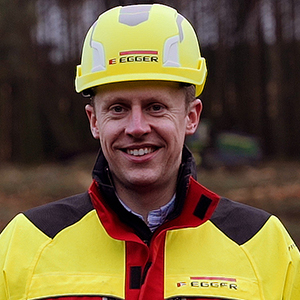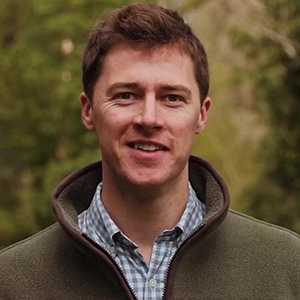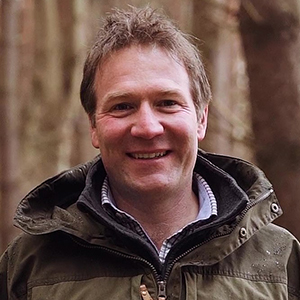Trees play a critical role in global efforts to combat climate change by sequestering carbon which stays locked up for hundreds of years. Timber and other wood products are not only used widely in construction, but are found in goods we all use daily in our lives. Governments across the UK have set ambitious tree planting targets but we need an expanded, skilled workforce to achieve them. Careers in forestry and arboriculture are exciting and varied. It is a high-tech sector that is brimming with opportunity.
Green spaces benefit
Mental and physical health
Greenhouse gas emissions
Nature and biodiversity
Working with trees

Our members work in rewarding roles in a diverse sector









Routes into the sector
There are a number of ways to become a tree professional, many of which are flexible, and depend on where you are in the UK.
University level entry
- Harper Adams University, Shropshire (Environmental land management undergraduate and Conservation / forestry postgraduate)
- Myerscough College, Lancashire (arboriculture undergraduate degrees inc foundation degree)
- National School of Forestry, University of Cumbria (forestry undergraduate degree course inc foundation degree, higher level Professional Forester degree apprenticeship)
- Scottish School of Forestry, University of the Highlands and Islands, Inverness (arboriculture and forestry HND, forestry HND and bachelor degrees)
- University of Aberdeen (masters level courses in environmental and forest management)
Bangor University, Wales (forestry undergraduate and post-graduate, distance learning options are available on some courses)
More and more graduates are entering the sector from other degree pathways, especially geography and environmental sciences. Skill sets from more diverse pathways are welcomed as they can bring fresh insight and approaches.
Apprenticeships
In England, apprenticeships are designed with the help of the employers in the industry, so they offer a structured programme that takes you through the skills you need to do a job well. There are targets and checks to make sure that your employer is supporting you and you are making progress. You will be in employment for most of your time as most training takes place on the job, 20% of your time will be off-the-job training on day release or over a number of days in a block. The universities and colleges that offer the following apprenticeships are listed on this page.
- Level 2 Arborist
- Level 3 Forest Craftsperson
- Level 4 Arboriculturist
- Level 6 (degree level) Professional Forester
- Level 6 (degree level) Professional Arboriculturist
In Scotland, apprenticeship content is defined in documents called ‘Frameworks’, which are designed by a Sector Skills Council (in this case Lantra Scotland acts as the Sector Skills Council) in partnership with industry and training providers. They contain a package of learning including a large competence qualification called an SVQ. This has core skills and optional units that allow the training provider to tailor the learning programme to the needs of your organisation, or the apprentice’s specific role. The training provider will help you to decide which framework is most relevant to the job and will incorporate optional units relevant to your organisation. You can search for available apprenticeships in Scotland here.
In Wales, the content is also defined in documents called ‘frameworks’, which are designed by the Sector Skills Council in partnership with industry and training providers. They contain a package of learning including a large competence qualification. This has core skills and optional units that allow the training provider to tailor the learning programme to the needs of your organisation, or the apprentice’s specific role. The training provider will help you to decide which framework is most relevant to the job and will incorporate optional units relevant to your organisation.
College level entry
- Arboriculture Level 2
- Arboriculture Level 2
- Arboriculture Level 3
Bridgewater and Taunton College
- Forestry and Arboriculture Technical Diploma Level 2
- Introduction to Arboriculture Level 1 Diploma
- Introduction to Arboriculture Level 1 Award
- Arboriculture and Forestry Intermediate Diploma Level 2
- Arboriculture and Forestry Advanced Diploma Level 3
- Arboriculture and Forestry Extended Diploma Level 3
The college also offers many short courses inc. chainsaw maintenance, tree felling, basic tree inspecting etc.
- Level 2 Forestry and Arboriculture Certificate
- Level 3 Forestry and Arboriculture Diploma
- Diploma in Arboriculture and Forestry Skills Level 2
- Extended Diploma in Forestry and Arboriculture Level 3
Herefordshire and Ludlow College
- Forestry and Arboriculture Level 2.
- Arboriculture (Tree Management) Level 3 Extended
- Arboriculture (Tree Management) Level 4 Award
- Environmental Studies Conservation and Arboriculture Level 2
- Forestry and Arboriculture Level 2 Diploma
- Forestry and Arboriculture Extended Diploma Level 3
- City & Guilds Level 2 Technical Certificate in Arboriculture
- City & Guilds Level 1 Diploma in Land Based Studies (Environmental Conservation)
- Level 2 Arborist apprenticeship
- City & Guilds Level 3 Advanced Technical Extended Diploma in Arboriculture
- Level 4 Arborist apprenticeship
- Level 1 Countryside and Woodland Skills
- Level 1 Routes to Land Management and Forestry
- Level 2 Technical Certificate in Forestry and Arboriculture
- Level 3 Advanced Technical Extended Diploma
- Foundation Level 1 Land Based Diploma
- Level 2 Diploma in Land and Environment
- Level 3 Advanced Technical Diploma in Forestry and Arboriculture
- Technical Baccalaureate in Forestry and Arboriculture
Various short courses available such as Chainsaw Maintenance, Felling and Processing Trees, Aerial Cutting of Trees, Aerial Tree Rigging and Tree Inspections.
- Arboriculture Level 3
- Arboriculture and Forestry Level 2 Technical Certificate
- Forestry Level 3
- Land-based Operations Level 1 Rural Skills (Woodland)
Part time courses in chainsaw maintenance, tree felling and processing and operating wood chippers etc.
- Arboriculture (Forestry and Tree Care) Level 2 Technical Certificate
- Arboriculture (Forestry and Tree Care) Level 3 Technical Diploma
- Arboriculture Level 2 Certificate
Courses in practical countryside skills, felling and processing trees and chainsaw maintenance also available.
- Arborist Level 2 Intermediate Apprenticeship
- Certificate Forestry
- Advanced Certificate in Forestry (Forest Mechanisation)
- Certificate in Forestry – SCQF Level 5
- Trees and Timber Modern Apprenticeship – SCQF Level 5
- General Woodland and Forestry Tree-work Modern Apprenticeship – SCQF Level 6
- Advanced Certificate in Forestry – SCQF Level 6
- Forestry HNC SCQF Level 7
- Arboriculture and Urban Forestry HNC SCQF Level 7
- Forestry PDA – SCQF Level 7/8
Short courses include basic chainsaw use, chainsaw maintenance and crosscut, advanced chainsaw use and basic chainsaw and felling.
- Level 2 Technical Certificate in Countryside, Forestry and Wildlife
- Level 3 Tilhill Advanced Technical Extended Diploma in Forestry and Arboriculture
- Level 3 Advanced Extended Technical Diploma in Countryside Management
- Level 2 Diploma in Land-based Industries (including Farm & Woodland Skills and Livestock & Machinery)
- Countryside Management (Including Forestry) Level 3
- Countryside and Environment Management (Including Forestry) Level 2
Short courses available in chainsaw, wood chipper, dry stone walling and fencing.
Career change?
There is no one size fits all approach for somebody who is considering a career change, it depends on your personal circumstances, prior knowledge and experience. If you have a degree in a related area such as geography, you may be able to apply for jobs directly, or you may benefit from a short training course to update your knowledge. In England, the higher-level apprenticeships allow you to work while studying, and are not age limited. Part-time and distance learning options are available on some of the bachelor and masters’ degree courses.
Work experience & volunteering
Hands-on experience is really beneficial. Why not consider some work experience, or sign up to volunteer at your local community woodland, forest or conservation group? Our forestry placements page is in development and will highlight the opportunities available in the sector.
Visit our job board
Further information
We work with lots of groups and organisations across the sector to produce resources on careers and education.
The Working with Trees and Timber guide includes a wide range of information on careers in the sector.
RFS offer a range of online resources and run a courses through local colleges.
Lantra is an awarding body and develops a lot of lower level and technical land based training courses.
Lantra Scotland has a wealth of resources including a forestry induction pack.
The Green Jobs for Nature website has useful information on the types of green jobs on offer and how to get involved with advice for career-changers, graduates, school leavers and more. It also includes green job profiles and case studies.
Our placements and work experience page was launched on behalf of the Forestry Skills Forum, and lists the current opportunities available in the sector.
Even if you are not based in Scotland, Skills Development Scotland’s My World of Work platform is worth exploring for career routes and job profiles.
Prospects have case studies on specific roles in the sector. For example, a Forest/Woodland Manager and an Arboriculturist.
Visit Green Jobs to view volunteer roles and training courses in the environmental sector.
Bursaries
Depending on your situation, you may be able to access funding to help with your training. Each scheme has different rules, guidelines and eligibility.
Get Chartered
We are the UK’s only professional body for the tree sector and are able to award chartered status to those who can demonstrate their abilities, competence and professionalism.
To become a Chartered Forester or Chartered Arboriculturist, you need a degree level qualification along with work experience. All degrees are awarded four points, ICF-accredited forestry and arboricultural courses score a higher number of points. You are assigned an additional point for each year of work experience and once you reach ten points, you can begin the Professional Membership Entry (PME) process for chartered status. To find out more about chartered status, visit this page.
Gain prestigious post-nominals
MICFor
Member of the Institute of Chartered Foresters
Institute-accredited degree courses (current)
- BSc (Hons) Forestry (8 points)
- BSc (Hons) Forestry with placement year (8 points)
- BSc (Hons) Conservation with Forestry (6 points)
- BSc (Hons) Conservation with Forestry with placement year (6 points)
- BSc Forestry and Environmental Management (7 points)
- MFor Forestry (8 points)
- MSc Agroforestry and Food Security (5 points)
- MSc Environmental Forestry (6 points)
- MSc Forestry distance learning (5/6 points)
- MSc Tropical Forestry distance learning (6 points)
- BSc (Hons) Countryside Management (5 points)
- BSc (Hons) Countryside and Environment Management (5 points)
- MSc Forestry Management (6 points)
- MSc Conservation and Forest Protection (6 points)
- BSc (Hons) Arboriculture and Urban Forestry (8 points)
- FdSc Arboriculture and Tree Management (5 points)
- MSc Arboriculture and Urban Forestry (6 points)
- BSc (Hons) in Forest Management (8 points)
- BSc (Hons) in Forest Management with placement (8 points)
- BSc (Hons) in Woodland Ecology and Conservation (7 points)
- BSc (Hons) in Woodland Ecology and Conservation with placement (7 points)
- FdSc Forestry (5 points)
- BSc (Hons) Forest Management – Forestry (7/8 points)
- BSc (Hons) Forest Management – Arboriculture and Urban Forestry (7 points)
- BSc (Ord) Sustainable Forest Management with Forest Conservation (7 points)
- BSc (Ord) Sustainable Forest Management with Arboriculture and Urban Forestry (7 points)
- HND Arboriculture & Urban Forestry (5 points)
- HND Forestry (5 points)
- MSc Environmental and Forest Management (6 points)
- PG Dip Environmental and Forest Management (5 points)
Historically-accredited courses
- FdSc Arboriculture (5 points)
- BSc (Hons) Arboriculture and Tree Management (5 points)
- FdSc Arboriculture (5 points)
- FdSc Arboriculture (5 points)
- FdSc Forestry & Woodland Management (5 points)
- BSc (Hons) Woodland Conservation Management (6 points)
- FdSc Woodland Conservation Management (5 points)


